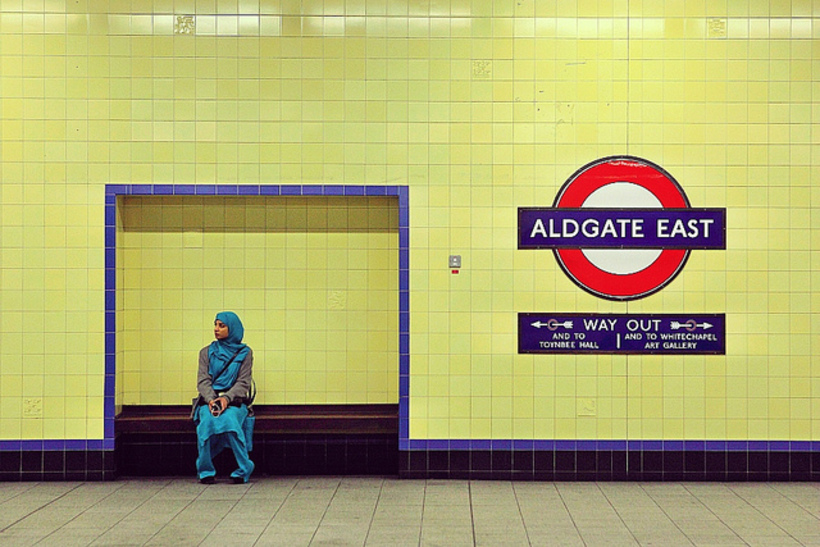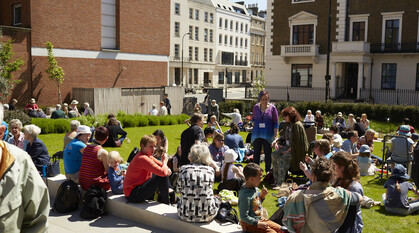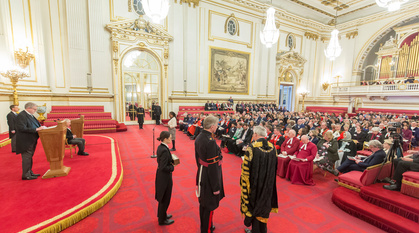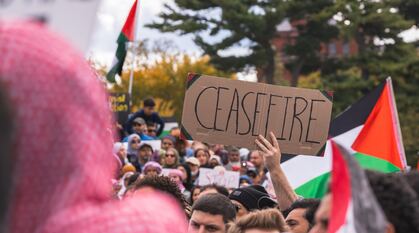How Quakers can challenge Islamophobia
Sahdya Darr reflects on how Quakers can act in solidarity with Muslims.

November is Islamophobia Awareness Month, and a recent episode of our podcast A Quaker Take discussed allyship and solidarity. As a Muslim member of staff who strongly believes that Quakers can be good allies, I felt moved to explore how non-Muslims can demonstrate allyship to Muslims.
A colleague's father told an acquaintance that his daughter is a Quaker. The response? "At least she's not Muslim." This is just one example of Islamophobia. Others include: a person spitting at my friend whilst she waited for the Tube; someone pulling at my relative's headscarf whilst she walked to work; a manager telling my brother that he wouldn't use his given name, Suleiman, and instead called him Simon; and border guards challenging my family almost every time we travel abroad. As a young British Muslim woman of South Asian descent I am only too aware of the Muslim part of my identity.
What is Islamophobia?
Islamophobia for British Muslims takes different forms, touching different aspects of our lives: personal, professional and institutional. Islamophobia is a daily occurrence. Open a newspaper and you'll see at least one Islamophobic article; the TV is no better. However, Islamophobia goes far beyond mere hate. The UK government's failed PREVENT duty has been described as Islamophobic by many Muslims and organisations such as the National Union of Teachers because it stigmatises Muslim communities by framing terrorism as a Muslim problem.
On a global level we can see how wars affect communities here at home in the UK and also how injustices such as Islamophobia are linked to wars abroad in Iraq, Afghanistan and the bombing of Libya. A recent report by Runnymede (PDF) (November 2017) states: "Referring only to 'anti-Muslim hate' (or even 'anti-Muslim prejudice and discrimination') doesn't fully capture the widespread (or structural) ways racial inequalities persist."
This holistic definition of Islamophobia might confuse some but it rightfully encourages us to acknowledge the overlap of race and religion. Although Islam is a religion and not a race, Islamophobia can be fuelled by racism. The Western perception of Islam often confuses religious and ethnic identity.
Learning and connecting
Quakers do – and continue to – challenge Islamophobia, antisemitism and racism. Last month, Woodbrooke Quaker Study Centre ran a course titled 'Exploring Islamophobia' and this week I was heartened to learn that Watford Quakers ran a workshop on racism and Islamophobia. In the USA, American Friends Service Committee have published articles advising Quakers and others on how to respond to Islamophobia in the US context. But there is more work to be done.
There's a quote from Advices & queries that resonates with me. I first saw it on a wall at Woodbrooke when I returned from the Ecumenical Accompaniment Programme in Palestine and Israel. It says, "Remember your responsibilities as a citizen for the conduct of local, national and international affairs. Do not shrink from the time and effort your involvement may demand." (Advice & queries 34, 1994).
Essential to any kind of activism is education. Educate yourself and others – be they in your extended family, your workplace, your neighbourhood – about Islam, and familiarise yourself with the issues Muslims face. The Quaker Centre Bookshop stocks a number of books about Islam. Learning from others involves a lot of listening but also doing! Grow your understanding by building relationships with Muslim people.
Activist Mariama Kaba wrote earlier this year 'Questions I regularly ask myself when I'm outraged about injustice'. These can be helpful for checking in with yourself on how best to work in solidarity with others:
- What resources exist so I can better educate myself?
- Who's already doing work around this injustice?
- Do I have the capacity to offer concrete support and help to them?
- How can I be constructive?'
Challenging harassment
The form your allyship takes depends on the situation. Here is some advice for dealing with harassment in the moment, published by MuslimGirl, a magazine for young Muslim women, who are disproportionately targeted by hate crimes – particularly those who cover their head and/or face. When you see someone under attack, MuslimGirl recommends that you:
- Ask the person being harassed if they're okay or need help before stepping into the situation unless it's an emergency
- Sit or stand beside the person being harassed and talk to them so they know they're not alone and the attacker is more likely to stand down
- Go to the closest authorities or draw attention from the people around you to alert them to the danger if you notice the situation escalating
- Take out your phone as it's not only good to take note of the time and place or videotape evidence of the altercation but it can also intimidate bigots into standing down.
To challenge these systemic problems we must start small, by holding people who display Islamophobia and racism accountable for their behaviour. Allies are well placed to do this work, and uphold those affected by it. Together, we can change the culture.
Resources
Book a place to explore this and other forms of allyship at the Answering that of God in everyone: Inclusion and diversity national gathering (17-19 January 2020)


